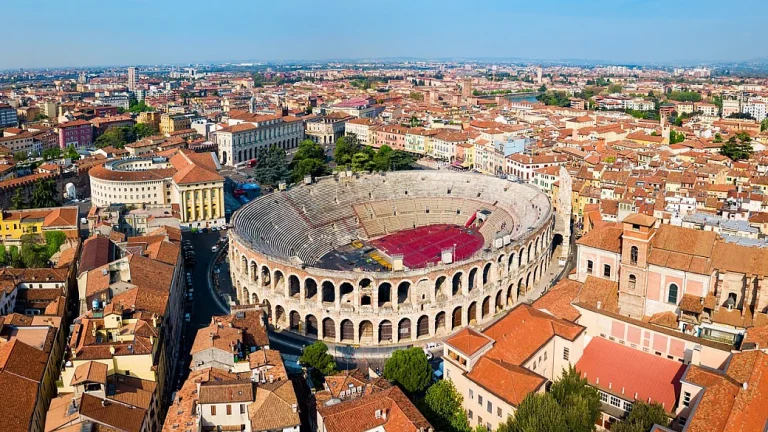Leveraging The Opportunities In the Creative Economy By African Diasporans – Dr Chetachi Egwu

In an increasingly interconnected world, the creative economy represents a great opportunity, offering fertile ground for innovation, expression, and economic growth. In a recent podcast interview with Dr Chetachi Egwu, she helped us understand that within this promising landscape, the African diaspora stands a great chance, wielding unique perspectives, talents, and cultural richness based on their experiences.
Want to learn more about storytelling? Start by downloading the first chapter of The Storytelling Mastery.
From the renewed vibes of Afrobeat music to the captivating storytelling of Nollywood films, the global stage is witnessing a renaissance fueled by the creativity of the African diaspora.
Amidst this cultural resurgence lies an even more profound opportunity—a chance to not only shape narratives and redefine industries but also to harness the immense economic potential inherent in creativity.
In this article, inspired by the valuable sharing from Dr Chetachi Egwu, we will delve into the transformative power of the creative economy for the African diaspora. We will explore avenues for empowerment, collaboration, and prosperity in an era ripe with possibilities and potential. But who is Dr Chetachi? That is probably the best place to start.
We initially encountered Dr. Chetachi Egwu during our online seminar commemorating Dr. Ikechi’s decade-long journey since defending his Ph.D. It was during this event that we seized the opportunity to arrange an interview with Dr. Egwu, a prominent figure whose trajectory epitomizes the intersection of academia, media, and the performing arts.
See the full interview with Dr Chetachi Egwu below:
Dr. Egwu is backed with years of experiences as a media/communication professor, writer/producer, journalist, and a filmmaker. She is also a dancer/choreographer and she epitomizes the multidimensional nature of creativity within the African diaspora.
See also Honoring Ourselves as African Diaspora Through Storytelling
All these are what led to her invaluable sharing in this interview at the Obehi Podcast. now, let’s start by understanding what is even meant by the creative economy.
What is The Creative Economy?
The Creative Economy refers to the economic system fueled by activities that rely on creativity, knowledge, and intellectual capital for value creation. It encompasses a broad range of sectors such as arts, media, design, technology, entertainment, and more, where innovation, originality, and cultural expression play pivotal roles.
This economy thrives on the production, distribution, and consumption of creative goods and services, including but not limited to music, literature, film, fashion, software, and advertising.
It encompasses both tangible and intangible products, as well as the processes and industries that support and facilitate creative endeavors.
In essence, the Creative Economy encompasses the economic impact of human imagination and ingenuity across various domains, and it drives growth, innovation, and cultural enrichment. Now, here are three key potentials of the creative economy:
Innovation and Economic Growth:
The Creative Economy fosters innovation by encouraging experimentation, originality, and cross-disciplinary collaboration. In this dynamic environment, new ideas easily emerge, leading to the development of innovative products, services, and processes.
This innovation, in turn, drives economic growth by creating new markets, industries, and opportunities for entrepreneurship. And this can be highly valuable for people in the African diaspora community, considering the economic challenges in that demography.
For example, advancements in technology often originate from creative industries like design and entertainment, and this can easily fuel growth in related sectors and contribute to overall economic expansion. What about cultural and social impacts?
Cultural and Social Enrichment
The Creative Economy plays a crucial role in preserving, promoting, and evolving cultural heritage and identity. Through various creative expressions such as art, literature, music, and film, communities can celebrate their traditions, beliefs, and values while also embracing diversity and inclusivity.
Additionally, creative endeavors often serve as platforms for social discourse, activism, and change. This process easily helps to better address critical issues and foster empathy and understanding among individuals and societies.
For instance, films, literature, and visual arts have been instrumental in raising awareness about social justice, environmental conservation, and human rights.
Job Creation and Human Capital Development
The Creative Economy offers significant employment opportunities across a spectrum of professions, ranging from artists, designers, and performers to technicians, marketers, and entrepreneurs. By leveraging human creativity and skills, this sector generates jobs that are often characterized by flexibility, autonomy, and innovation.
Valuable skills are always paramount to any economic activity. Through participation in creative activities, valuable skills such as critical thinking are created. These skills, including communication, problem-solving, and adaptability, end up contributing to the development of a highly skilled and versatile workforce.
This not only enhances individual livelihoods but also strengthens the overall resilience and competitiveness of the economies.
For instance, creative industries in cities like Los Angeles, London, and Tokyo are major contributors to employment and economic vitality. By functioning like this, these cities easily attract talent from diverse backgrounds and foster vibrant cultural ecosystems.
That leads us to the economic opportunities in leveraging cultural heritage in the Creative Economy and this is not a small potential in the African diaspora community.
Embracing Your Cultural Heritage For The Creative Economy
Embracing one’s cultural heritage within the creative economy offers a unique opportunity for individuals within the African diaspora. As members of the African diaspora community, improve your skills and learn how to leverage your rich cultural identity as a source of inspiration, differentiation, and market appeal.
By infusing your creative endeavors with elements of your cultural heritage—whether through music, art, fashion, literature, or other mediums, you can tap into a vast reservoir of authenticity and storytelling that can resonate with your audiences on a profound level.
Note that this not only allows for the preservation and celebration of diverse cultural traditions but also opens doors to new markets, collaborations, and opportunities for economic empowerment.
For example: If you’re a musician, you can consider infusing your compositions with rhythms and melodies inspired by traditional African music. If you’re a visual artist, think of ways to explore themes of identity, heritage, and resilience in your artwork.
Remember also that embracing cultural heritage is a great way to foster a sense of pride, belonging, and community. In the end, it helps to strengthen bonds within the diaspora while forging connections with audiences around the world who share a similar cultural background or appreciation for cultural diversity.
Consider, for example, the wealth of experience of Dr. Egwu in the creative journey. It surely represents the boundless possibilities that can emerge when one dares to defy convention and embrace the full spectrum of their talents.
From academia to filmmaking, dance to social media consultancy, her diverse portfolio exemplifies the versatility and dynamism inherent in the creative economy.
Of course, you don’t need to become another Dr. Egwu, but you surely do have plenty of potential around your experiences for the creative economy.
Another interesting area to consider is the creative economy collaboration and skill set diversification. you never need to underestimate this. Let’s see it below.
Collaboration and Diversify Your Skill Set
As the global landscape continues to evolve, the creative economy is fast becoming more attractive for individuals within the African diaspora. From film and television to fashion and design, the demand for diverse voices and perspectives has never been greater.
By harnessing the power of collaboration, innovation, and entrepreneurship, you can easily carve out your own unique niche within this growing industry. so, learn this thing. diversify your skill sets.
Diversifying your skill set within the creative economy can be a great strategy to broaden your earning opportunities and enhance your competitive edge.
By cultivating a diverse range of skills and talents that complement their core creative pursuits, individuals can better position themselves as versatile and adaptable professionals capable of thriving in an ever-evolving industry landscape.
For instance, if you’re a writer, you might consider expanding your skill set to include disciplines such as video production, graphic design, or social media management. By mastering these additional skills, you not only enhance your ability to create compelling content but also open up new avenues for collaboration and career advancement.
Whether it’s collaborating with multimedia teams on cross-disciplinary projects, launching your own creative ventures, or securing freelance opportunities in emerging digital platforms, diversifying your skill set can empower you to explore new avenues for creative expression, professional growth, and economic success within the creative economy.
That leads us to goal setting and the right action because nothing happens until you take action.
You might also want to see Collaborating for Content: How African Diaspora Small Businesses Can Partner with Influencers and Other Businesses
Set Clear Goals and Take Strategic Action
The time for action is now. As we stand on the precipice of a new era of creativity and innovation, individuals within the African diaspora have a unique opportunity to shape the narrative and redefine the boundaries of what is possible.
By leveraging our collective talents, resources, and ingenuity, we can pave the way for a brighter, more inclusive future for generations to come.
- Strategy: Define clear, actionable goals for your creative endeavors and develop a strategic plan to achieve them.
- Example: Break down your long-term goals into smaller, manageable tasks and set deadlines for each milestone.
Whether it’s completing a project, launching a new business venture, or securing funding for a creative endeavor, taking consistent, strategic action is key to realizing your dreams. So, make sure you take the right action.
Conclusion on The Opportunity In the Creative Economy For African Diaspora
In conclusion, the opportunity in the creative economy for the African diaspora is vast and multifaceted. By embracing our cultural heritage, diversifying our skill sets, networking and collaborating with others, and taking strategic action, we can unlock new pathways to success and prosperity.
Together, let us embark on this journey of creativity, innovation, and transformation, and seize the boundless opportunities that await us on the horizon.
Want to learn more about storytelling? Start by downloading the first chapter of The Storytelling Mastery.





